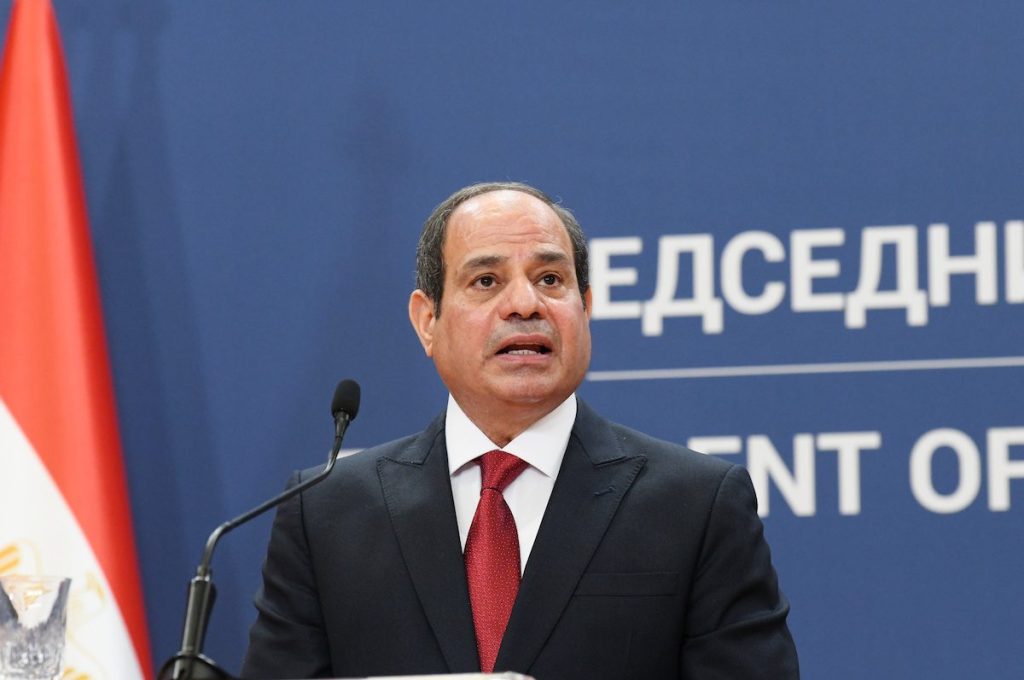Egyptian President Abdel Fattah al-Sisi cautioned on Sunday that the country may need to reconsider its IMF-backed economic reforms if mounting regional challenges continue to exert unbearable economic pressure on its citizens.
Speaking at the Global Congress on Population, Health and Human Development in Cairo, Sisi expressed concerns about the impact of escalating inflation following recent fuel price increases. “If these challenges will make us put unbearable pressure on public opinion, then the situation must be reviewed with the IMF,” he stated.
Since 2022, Egypt has faced a severe economic crisis, marked by a reliance on imports, currency devaluations, and soaring foreign debt. The economy, heavily influenced by military-linked enterprises and extensive infrastructure projects, has struggled to maintain stability.

Earlier this year, the International Monetary Fund (IMF) approved an additional $5 billion to supplement the initial $3 billion loan granted to Egypt. In exchange, the IMF demanded comprehensive reforms, including a shift to a more flexible exchange rate, measures to promote private sector growth, and efforts to tackle high inflation and government debt.
Sisi, addressing both the IMF and the World Bank, emphasised the ongoing challenges Egypt faces. His remarks followed the government’s announcement of up to a 17 percent increase in fuel prices on Friday—the third such hike this year—as part of a plan to end fuel subsidies by 2025. The price increases affected diesel and mazut, essential for mass transport and industrial use, leading to a rise in public transport fares in Cairo.
Last year, Egypt’s inflation rate peaked at nearly 40 percent, with the most recent figures in September showing a rate of 26 percent. The country has received three instalments of its IMF package, with the next review mission expected in the coming months.
Sisi highlighted that Egypt is implementing its reform programme amid challenging regional and global circumstances, including conflicts in neighbouring Gaza and Sudan. He also pointed out that the Suez Canal’s revenue has been impacted by attacks from Yemen’s Houthi rebels, who claim to support Palestinians in Gaza, resulting in an estimated loss of $6-7 billion over the past several months.


